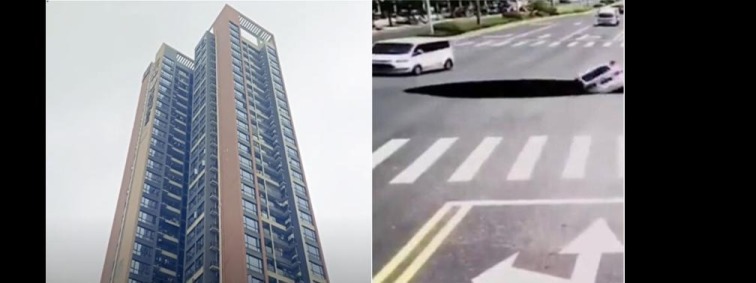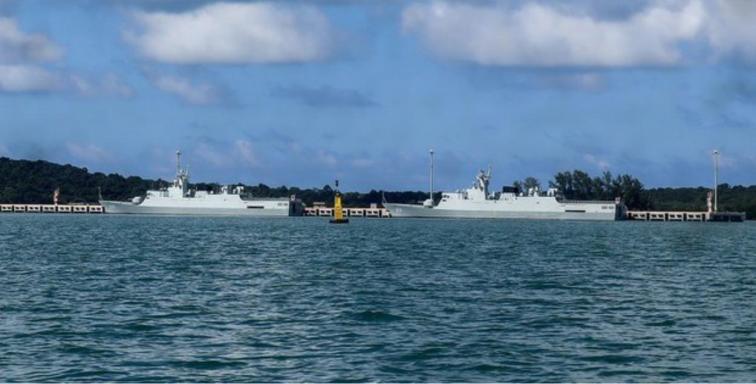[People News] Since September, residents on Jeju Island in South Korea have repeatedly discovered small packets along the coastline that were disguised as tea packages. After inspection, these packets were found to contain ketamine. Similar drug packets with labels such as “Iron Goddess” and “Tea Aroma,” written in simplified characters, were later found on Oct. 15 and Oct. 24 along the shores of Pohang and Jeju.
1. South Korean experts believe drug traffickers are using ocean currents
Police in South Korea stated that since late September, ten discoveries along Jeju’s coast have produced a total of 28 kilograms of ketamine—enough for approximately 970,000 people to use at once. The largest batch, weighing 20 kilograms, was found by a beach cleaner on Oct. 15.
Ketamine is used medically as an anesthetic, but its recreational use is illegal in South Korea. Abuse can harm heart and lung function. Because it is a pure anesthetic, it is not mixed with herbal medicine or cold medicine and is always transported separately.
Authorities suspect the drugs drifted to Jeju via ocean currents. Local Coast Guard investigators noted that similar packets were also found in Pohang and on Tsushima Island in Japan.
A professor specializing in addiction studies at Hansung University stated that the ketamine packages may involve a larger criminal organization. He explained that some groups use “maritime drops,” in which drug bundles equipped with trackers are thrown into the sea and later retrieved. Criminal networks may be trying to use Jeju as an entry point into South Korea by exploiting gaps in airport and port inspections. The tea-package disguise and simplified-character labels strongly point toward the source.
2. A drug-smuggling route existed 20 years ago from South Korea to Yantai
According to information released in 2005 by the Ministry of Public Security of the regime, a transnational drug network led by a Canadian citizen planned to smuggle one ton of ketamine from India into mainland territory. Their route went from Mumbai to Singapore to Busan and then to Yantai, eventually transporting the drugs overland to Guangdong. In other words, the India–Singapore–Busan–Yantai drug corridor existed two decades ago. Back then, authorities targeted smuggling entering the country; today, nations are targeting synthetic drugs exported outward from the regime.
Over the past 20 years, the situation has reversed: countries led by the United States are now trying to block synthetic-drug exports. At the same time, regions connected through the “Belt and Road” initiative have become deeply infiltrated by criminal syndicates—gambling, human trafficking, cyber-fraud, and money-laundering networks have grown into complete gray-market industries, becoming de facto economic pillars in some countries and forming new transnational crime zones.
In 2023, South Korean media revealed that two secret police stations operated by the regime had been found on Jeju Island. Many recent reports indicate that security and intelligence agents from the regime are cooperating with overseas criminal groups for profit. Whether they are involved in the Jeju drug-smuggling case is an open question.
3. The “Belt and Road” framework enables local police to extend operations overseas
A former intelligence operative from Chongqing stated on social platforms that the head of a major crime group in Cambodia maintained close ties with high-ranking security officials from Beijing and Chongqing. He confirmed that this group—long involved in fraud and forced labor—was not a target of authorities, but instead a partner working hand-in-hand with security agencies.
He said he personally witnessed senior political-security officials holding a secret meeting at a private club in Cambodia, where they planned to fabricate charges against a dissident artist living in exile. The crime group provided transport and hospitality for the entire operation.
He also described an incident where his superior, a senior official known by a nickname, ordered him to assist in locating a family who practiced a banned spiritual discipline. After he provided the address, he was rewarded with cash. The official is now a deputy chief in a major municipal public-security bureau. How did a local official gain authority to operate in Thailand?
A report published in mid-2024 stated that Chongqing and Yangon signed a cooperation agreement under the “Belt and Road” framework.
The former agent explained that the regime’s intelligence system follows the principle of “using commerce to fund intelligence”—that is, using business operations to finance and cover intelligence work. He said the crime group’s real purpose is to provide money and manpower for covert operations.
He also recounted an internal theft case: an employee of the crime group stole a large sum of Thai currency. Fearing the consequences, company managers begged him not to report it to the security official. But the official took the case extremely seriously and launched an immediate investigation—clear evidence of deep ties between the crime group and the security apparatus.
According to the whistleblower, he holds substantial evidence—including bank records, employment documents, and rental contracts—parts of which have already been released anonymously. These materials strongly support the credibility of his disclosures.
Other whistleblowers have described similar patterns. For example, during a past insurgency in northern Myanmar, groups inside mainland territory, along with certain security departments, maintained complex political and economic relationships with armed factions. A senior provincial security chief associated with these networks was investigated by national disciplinary authorities in 2025.
(First published by People News)△










News magazine bootstrap themes!
I like this themes, fast loading and look profesional
Thank you Carlos!
You're welcome!
Please support me with give positive rating!
Yes Sure!